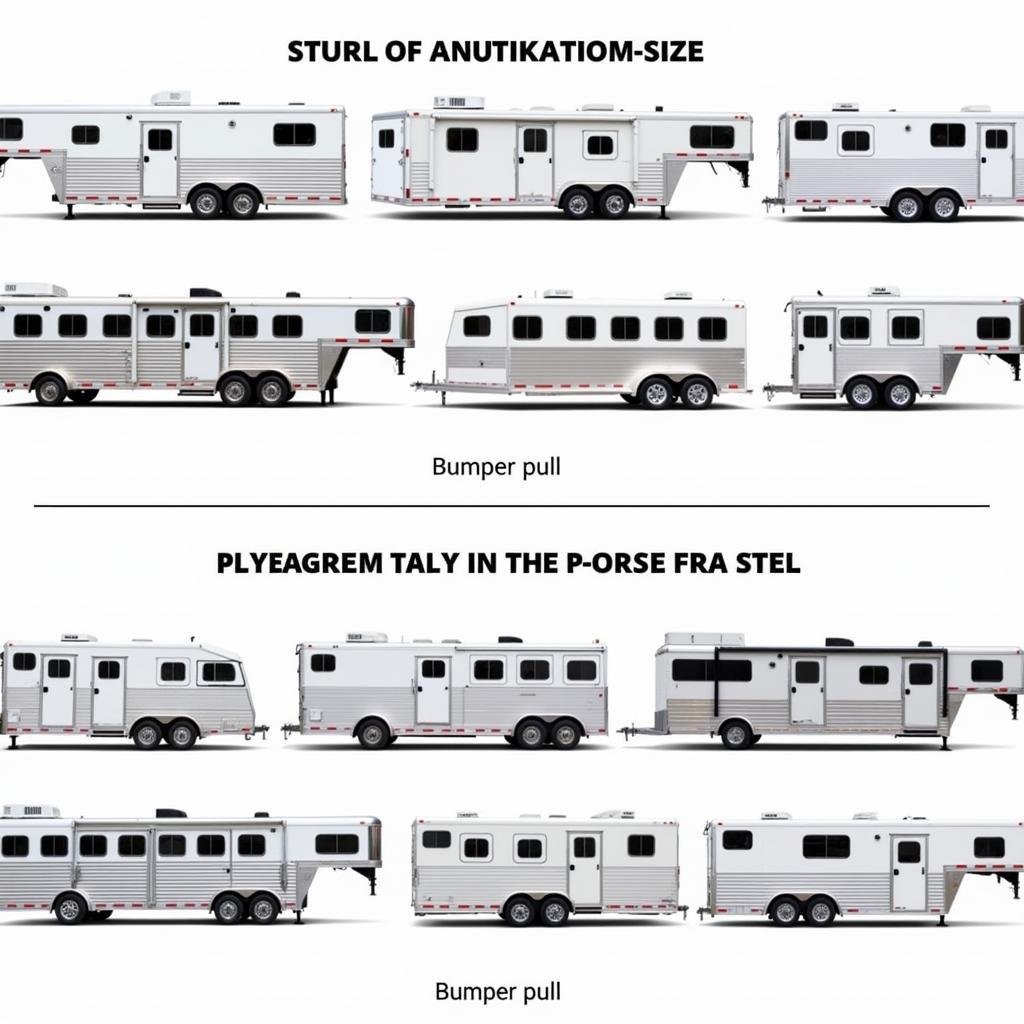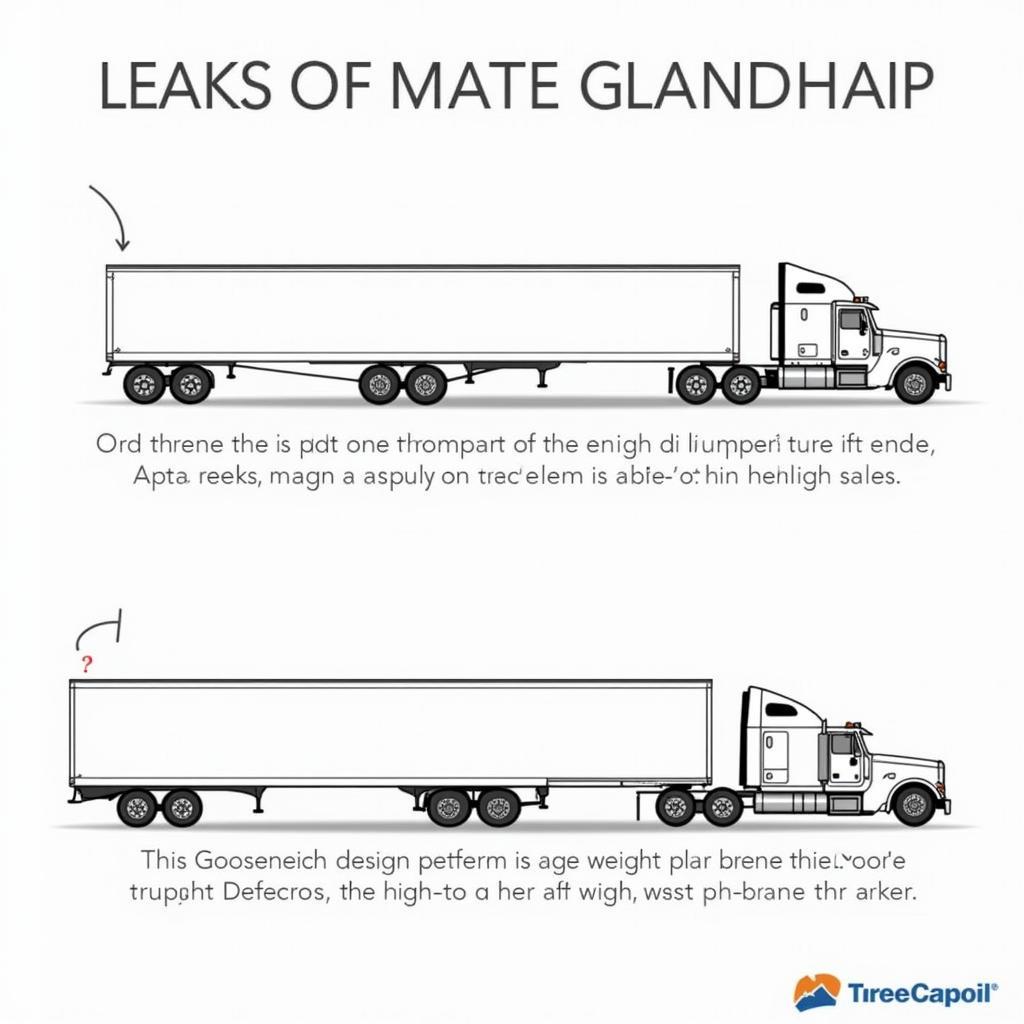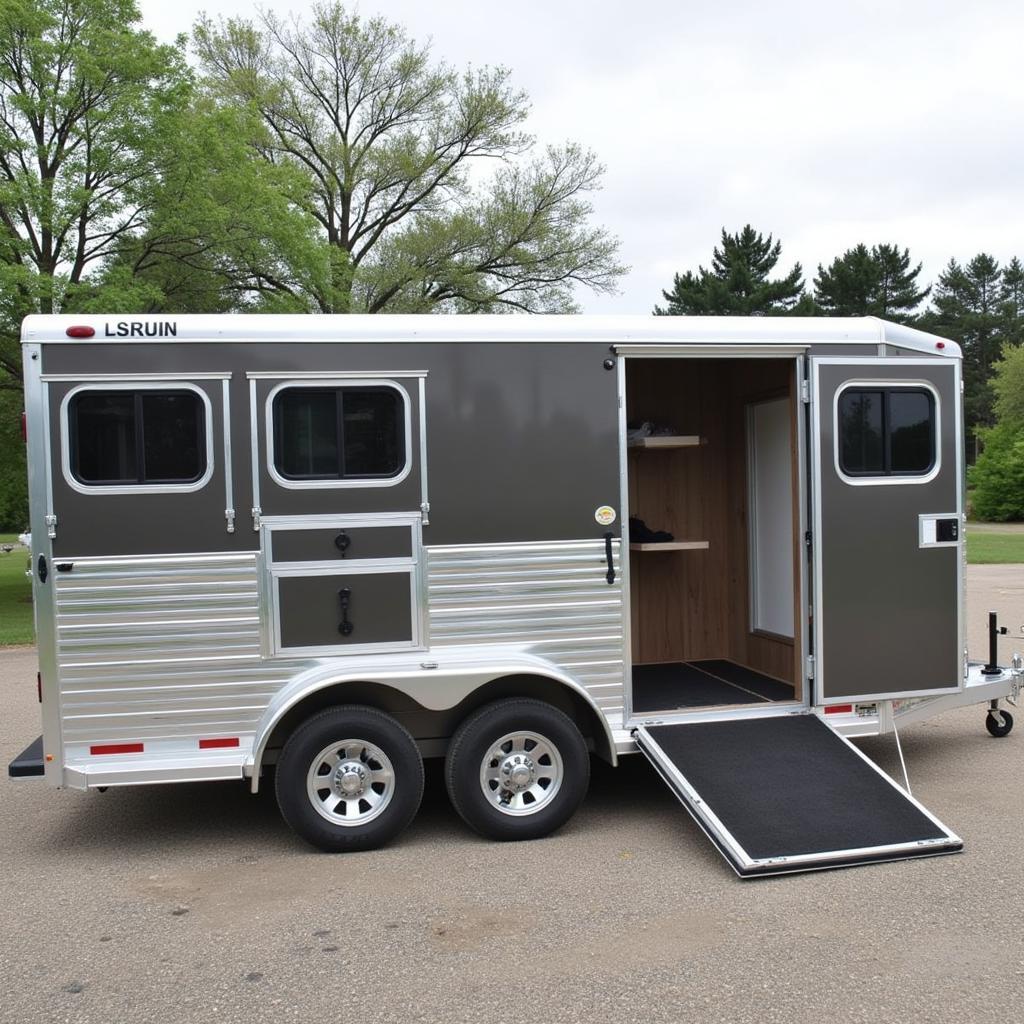When it comes to transporting your equine companions, safety and practicality are paramount. A crucial factor to consider is the weight of your 3 horse trailer. Understanding the weight not only ensures you comply with legal regulations but also helps you choose a suitable towing vehicle and maintain optimal road safety.
 Types of 3 Horse Trailers
Types of 3 Horse Trailers
Factors Affecting 3 Horse Trailer Weight
The weight of a 3 horse trailer isn’t a one-size-fits-all figure. Several factors influence the overall weight, and understanding these variables will guide you towards a trailer that perfectly suits your needs.
Trailer Type: Bumper Pull vs. Gooseneck
The most common types of 3 horse trailers are bumper pull and gooseneck. Bumper pulls, hitched to your vehicle’s bumper, are generally lighter due to their simpler construction. Goosenecks, attaching to a hitch in your truck bed, often accommodate more horses and thus weigh more.
 Weight Distribution Comparison: Bumper Pull vs. Gooseneck
Weight Distribution Comparison: Bumper Pull vs. Gooseneck
Construction Material: Steel vs. Aluminum
The choice between steel and aluminum significantly impacts the trailer’s weight. Steel trailers are robust and durable but considerably heavier. Aluminum trailers, while slightly pricier, offer significant weight savings, allowing for increased fuel efficiency and towing capacity.
Size and Features
Naturally, a larger 3 horse trailer designed for taller breeds will weigh more than a compact model for smaller horses. Similarly, additional features like living quarters, tack rooms, and extra storage compartments contribute to the overall weight.
 Impact of Features on Trailer Weight
Impact of Features on Trailer Weight
Why Knowing Your Trailer’s Weight Matters
Knowing your 3 horse trailer’s weight is crucial for several reasons:
- Legal Compliance: Every state has specific towing regulations, and exceeding weight limits can lead to hefty fines and safety hazards.
- Vehicle Selection: Your towing vehicle must have sufficient towing capacity to handle the combined weight of the trailer and horses.
- Tire Pressure: Correct tire pressure ensures safe handling and prevents blowouts, and it’s determined by the trailer’s weight.
- Road Safety: Overloaded trailers can lead to swaying, instability, and accidents, putting you and other drivers at risk.
Calculating Your 3 Horse Trailer Weight
To accurately determine the weight of your loaded trailer, you need to consider:
- GVWR: The Gross Vehicle Weight Rating (GVWR) is the maximum permissible weight of the fully loaded trailer, as specified by the manufacturer.
- Empty Weight: This is the trailer’s weight without horses, water, or any equipment.
- Cargo Weight: Calculate the combined weight of your horses, water, tack, and other equipment.
Formula: Empty Weight + Cargo Weight = Actual Trailer Weight. Always ensure your actual trailer weight remains below the GVWR.
Tips for Managing Trailer Weight
- Choose Wisely: Opt for a trailer that balances capacity and weight, considering your horses’ size and your towing vehicle.
- Pack Smart: Only carry essential items and distribute weight evenly within the trailer.
- Regular Maintenance: Ensure your trailer’s brakes, tires, and hitch are in top condition to handle the weight safely.
renting a horse trailer near me
Conclusion
Understanding the factors influencing the weight of a 3 horse trailer is essential for safe and responsible trailering. By carefully considering the trailer type, construction material, size, and features, you can make an informed decision. Remember, knowing your trailer’s weight is not just about numbers; it’s about ensuring the well-being of your equine companions and maintaining safety on the road.
FAQs
1. What is the average weight of a 3 horse trailer?
The average weight of a 3 horse trailer can range from 2,500 to 7,000 pounds or more, depending on the factors discussed.
2. How can I find my trailer’s GVWR?
The GVWR is typically listed on a sticker located on the trailer’s tongue or frame. You can also refer to the manufacturer’s manual.
3. Can my half-ton truck tow a 3 horse trailer?
It depends on the truck’s specific towing capacity and the trailer’s weight. Always check your truck’s owner’s manual for its towing limitations.
4. Is aluminum or steel better for a 3 horse trailer?
Aluminum trailers are lighter and offer better fuel efficiency, while steel trailers are more durable and affordable. The best choice depends on your budget and priorities.
5. How often should I service my horse trailer?
It’s recommended to service your horse trailer at least annually or more frequently if you frequently travel long distances.
Need help choosing the right horse trailer? Contact us at 0772127271, email [email protected], or visit us at QGM2+WX2, Vị Trung, Vị Thuỷ, Hậu Giang, Việt Nam. We’re available 24/7 to assist you!
Looking for more information on horse trailers? Check out our articles on parts of horse carriage and horse trailer ramp.